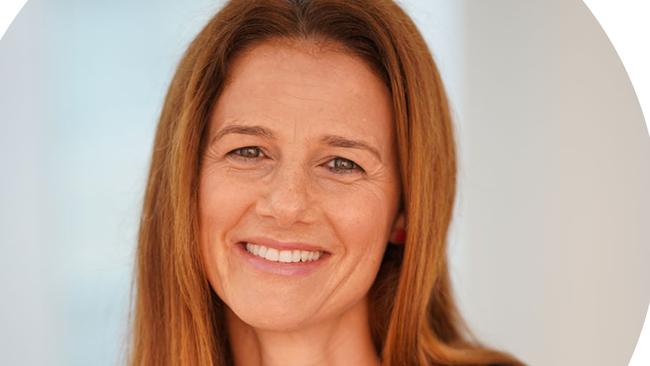Chanel Contos speaks at senate committee into consent laws
The sexual abuse campaigner says Australia has “decriminalised rape” and addressing pornography consumption is critical.
Sexual abuse campaigner Chanel Contos said Australia has “essentially decriminalised rape” due to the amount of cases that slipping through the country’s legal systems, and urged leaders to focus on the damaging effects of pornography.
Ms Contos, currently in the United Kingdom, made her remarks to a senate committee analysing current and proposed sexual consent laws in Australia on Tuesday.
The committee, which includes Greens senator Larissa Waters, Liberal National senator Paul Scarr and Labor’s Nita Green, met for the first of three days of public hearings in Canberra on Tuesday.
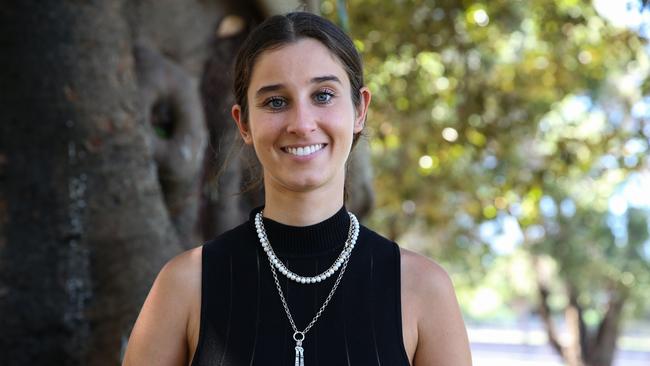
A focus of the committee will be whether Australia’s sexual consent laws can be better harmonised across its criminal jurisdictions, and in particular whether sexual consent should be affirmative across all Australian states.
Ms Contos, who founded Teach us Consent, told the committee she supported the harmonisation of consent laws across Australia, which she said would be “historical,” but said such reforms would not address the core issues leading to sexual violence.
“These reforms would be historical and send a clear message to Australia that holding accountability for sexual violence is a national priority,” she said.
Ms Contos said the reforms would not be effective in the majority of cases involving sexual violence.
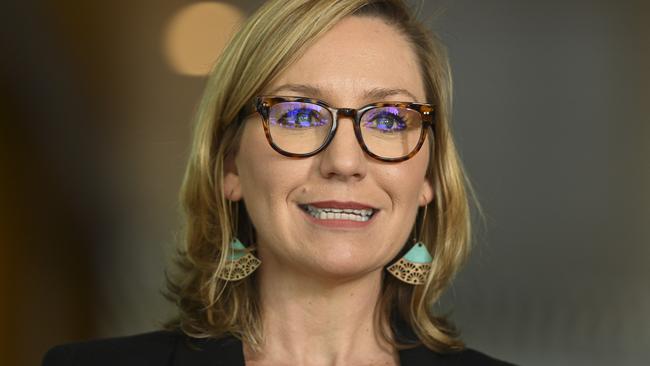
“Current legal systems fall short in acts of sexual violence committed out of opportunity, entitlement, problematic attitudes, and a misunderstanding of or disregard for consent,” she said.
“Our inability to handle this has made it (as) though, as a country, we have essentially decriminalised rape.”
Ms Contos said even with a harmonisation of consent laws across Australia, the legal system would still fail to take into account common responses to sexual assault, such as fawning, which said was often weaponised against complainants during criminal trials.
Fawning is a trauma response characterised by appeasing or submissive behaviour towards a perpetrator.
The 25-year-old Sydneysider, now living in London, also raised the spectre of “violent” and “misogynistic” pornography she says boys are consuming at increasing rates.
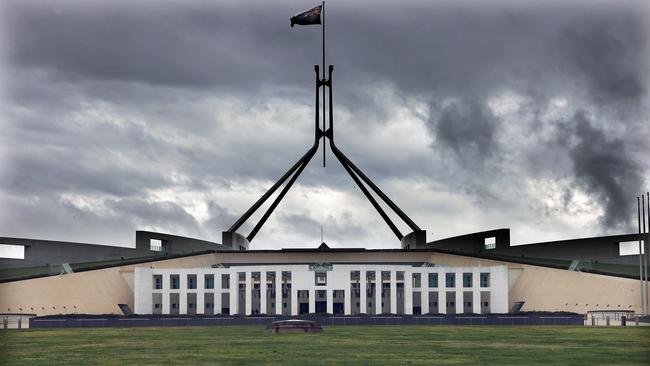
“We’re not taking into account enough how much pornography is shaping the sexual landscape of young people and distorting their understanding of consent,” she said.
“We can have laws, we can have conversations in classrooms, we can have all these things.”
“But the reality is that the amount of hours that young Australians spend watching violent and misogynistic depictions of explicit sex will counteract all of that.”
According to the Australian Institute of Health and Welfare, nearly two million Australian adults have experienced some form of sexual assault since the age of 15.
Despite the high number, convictions for sexual assault have rarely budged from about 10 per cent of cases.
Sexual assault at Australian universities is also expected to come under the microscope during the committee inquiry.
A Universities Australia report from 2021 showed that as many as one in six students had experienced sexual assault since beginning university, with more than 40 per cent occurring on general campus areas.
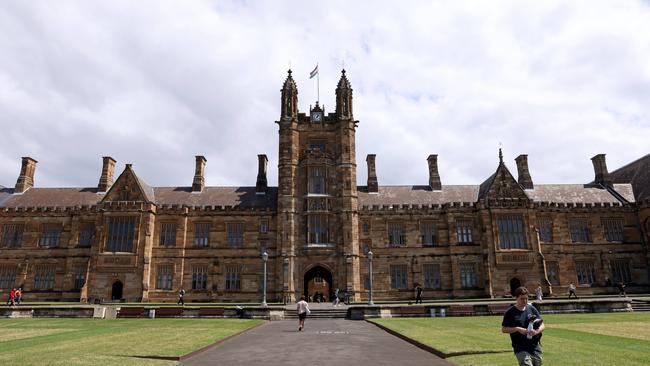
On Tuesday the committee also heard from Tosca Looby, who directed the SBS documentary ‘Asking For It,” which aired earlier this year.
In her opening statement, Ms Looby said the documentary, which was made with investigative journalist Jess Hill, has reached as many as 700,000 viewers.
“We made it because rape is the easiest crime to get away with and there are so many reasons why a victim survivor chooses not to report or to prosecute,” she said.
“We made it because so few victim survivors understand that it’s not their fault – and so few perpetrators of rape ever acknowledge what they’ve done.”
The committee will host three consecutive days of public hearings, and is due to conclude in Sydney on Thursday, and will hear from End Rape on Campus and the Law Council of Australia.
